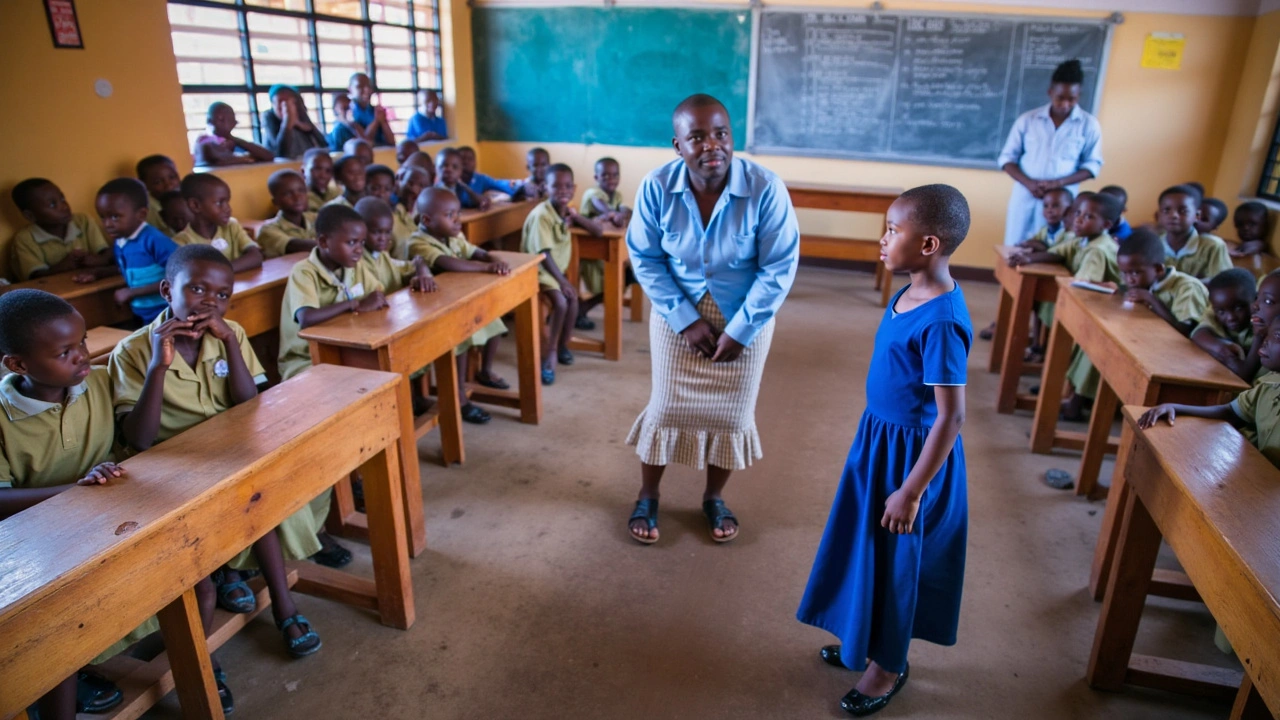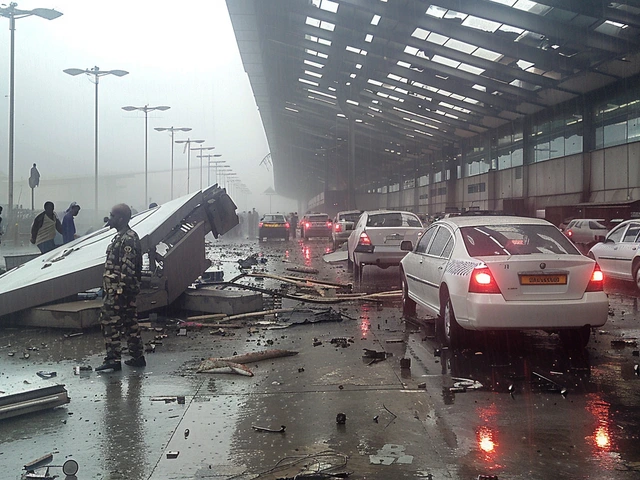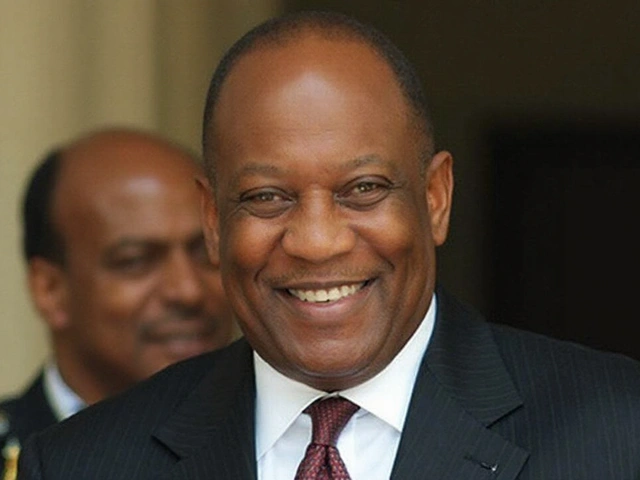Overview of Rwandan Educators' Prized Role and Current Predicaments
World Teachers’ Day provides a moment for reflection and acknowledgement of the profound role educators play in shaping future generations. In Rwanda, as teachers join their global counterparts in marking this day on October 5, 2024, the spotlight is sharply focused on the critical predicaments they encounter. Even as the country has made commendable strides in the education sector, certain challenges — primarily low salaries, insufficient infrastructure, inadequate educational materials, challenging working conditions, and limited opportunities for training — continue to interfere with the ability of teachers to effectively deliver quality education.
Teachers in Rwanda are vital in nurturing the intellectual growth and development of students who represent the nation’s future hope. However, an increasing student population, coupled with a shortage of educators, adds an immense burden to the already strained resources within the educational landscape. While the government’s resolve to improve the education sector is apparent, as reflected through investments in school infrastructure and teacher recruitment, these steps only skim the surface of a deeper issue requiring more resolute solutions.
Low Salaries: A Barrier to Motivation and Retention
The issue of low salaries remains the top grievance among Rwandan teachers. Persistent low pay affects both motivation and retention, contributing to a vicious cycle where talented individuals either leave the profession or those with potential are dissuaded from joining. A competitive salary is not just about financial sustainability for teachers but is also an acknowledgment of the vital societal roles they are fulfilling. Without appropriate compensation, teachers find it increasingly challenging to meet personal and familial obligations, leading to dissatisfaction and decreased job performance.
Statistics illustrate that in numerous cases, teachers are forced to take up additional jobs or commercial activities to supplement their incomes, detracting focus and energy away from class preparations and student engagement. The solution, as many experts argue, lies in not just immediate increments in salaries, but in creating an adaptive payment framework that reflects inflation rates and the increasing cost of living, ensuring sustainable teacher welfare.
Infrastructure and Resource Deficiencies: An Impediment to Learning
Inadequate infrastructure is a blaring concern that not only affects teachers but students as well. Overcrowded classrooms can hardly create an ideal learning environment. Many schools operate with limited space, often forcing students to learn in shifts, which compromises the effectiveness of learning. These space constraints further strain resources such as textbooks, libraries, and technological tools, crucial elements that facilitate a conducive learning environment.
Investment in infrastructure is more than just constructing new buildings; it involves equipping them with necessary educational materials and advanced technology to help teachers impart modern and holistic education. Providing access to up-to-date technology can enhance teaching methods and learning experiences, thus bridging the gap between traditional theoretical lessons and practical, hands-on applications necessary for preparing students for a global market.
Quality Education: A Victim of Insufficient Training
Professional development opportunities are key in ensuring that teachers are equipped with the latest teaching methodologies and tools. Unfortunately, this is an area where Rwandan educators see significant gaps. Regular training is essential for teachers to adapt to new educational challenges and integrate innovative teaching methods within their curriculums. However, current offerings in terms of training programs are sparse and often occur without the regularity and comprehensiveness needed for significant impact.
The absence of continual professional development not only stunts educators’ personal growth but also affects the quality of education provided to students. To combat this, there's a need for structured and consistent training programs funded by government and educational stakeholders. Such efforts would help revitalize teaching practices and bring a much-needed breadth of knowledge into classrooms, fostering a more dynamic and engaging learning experience for students.
Addressing the Need for Holistic Educational Policies
As World Teachers’ Day 2024 acts as a catalyst for highlighting these challenges, it is imperative for the Rwandan government and educational authorities to craft comprehensive policies that address these issues head-on. While ongoing investments in infrastructure, as well as teacher recruitment, are steps in the right direction, the entire scope of the educational ecosystem demands a systemic overhaul.
Meaningful reforms can be accomplished through collaborative efforts among government entities, educational institutions, teachers’ unions, and community organizations. Creating forums for dialogue can help identify strategies that best fit Rwanda’s unique educational landscape. We must also learn from successful models worldwide, adapting their core principles into the Rwandan context, thereby creating an education system that is both innovative and inclusive.
Conclusion: A Call to Action
The improvement of the education sector in Rwanda is not just a matter of national interest but a shared responsibility among all stakeholders influencing educational policy and practice. As Rwanda commemorates World Teachers' Day 2024, there is hope that increased recognition of these pressing issues will lead to decisive action and tangible improvements in the educational realm. More investments in teachers’ welfare, infrastructure development, and training opportunities are critical to equipping teachers to play their pivotal role effectively. By addressing these challenges, Rwanda stands to unlock the full potential of its educators, thereby shaping a promising future for the nation’s youth.






Mansi Bansal
October 6, 2024 AT 03:42Teachers are the unsund architects of a nation's future, and in Rwanda their dedication shines through countless challenges.
When we talk about low salaries, we are really discussing the value a society places on knowledge.
Even with limited resources, many educators still bring passion to the classroom, often sacrificing personal time.
It is vital that policy makers listen to the lived experiences of teachers, not just statistics.
Only then can we build a system that truly supports those who shape our children.
ajay kumar
October 13, 2024 AT 02:22Rwanda's teachers are doing a lot with very little, and that deserves real respectt.
Low pay means they have to work extra jobs, which cuts into lesson planning time.
Simple salary hikes could lift morale and let them focus on teaching.
We need quick fixes while working on long term reforms.
Sampada Pimpalgaonkar
October 20, 2024 AT 01:02It's amazing how teachers keep the learning wheels turning despite crowded classrooms.
When communities pitch in, schools can get basic supplies faster.
Collaboration between parents and teachers creates a supportive vibe for students.
Let's keep sharing ideas and celebrating the hard work of educators.
Chinmay Bhoot
October 26, 2024 AT 23:42The government keeps throwing money at new school buildings while ignoring the fact that teachers are overworked and underpaid.
Infrastructure without competent staff is just a fancy empty shell.
Any real improvement must start with fair wages and proper training, not just brick‑and‑mortar hype.
Politicians love photo‑ops, but teachers need sustainable support.
Otherwise the cycle of burnout will never break.
Raj Bajoria
November 2, 2024 AT 21:22True, salary reforms are the missing piece.
Simardeep Singh
November 9, 2024 AT 20:02Education is a fire that can never be quenched, yet we keep trying to drown it with budget cuts.
The soul of teaching lives in curiosity, not in a paycheck.
When we measure value by attendance sheets, we miss the deeper spark teachers ignite.
Let’s rethink priorities and give learners the light they deserve.
Otherwise we’re just feeding a hollow echo.
Aryan Singh
November 16, 2024 AT 18:42Professional development is the cornerstone of any thriving education system, and Rwanda stands to gain immensely from systematic training programs.
First, regular workshops can update teachers on the latest pedagogical methods, ensuring lessons remain engaging and effective.
Second, mentorship schemes pair novice educators with experienced mentors, fostering knowledge transfer and confidence building.
Third, incorporating digital literacy training equips teachers to integrate technology, which is increasingly essential in modern classrooms.
Fourth, aligning training content with national curriculum goals ensures consistency across schools.
Fifth, offering certifications for completed courses provides tangible incentives and career advancement pathways.
Sixth, collaboration with international NGOs can bring fresh perspectives and resources, enriching local programs.
Seventh, allocating dedicated budget lines for professional development prevents funding gaps and demonstrates governmental commitment.
Eighth, monitoring and evaluation mechanisms help assess the impact of training, allowing for iterative improvements.
Ninth, encouraging teacher feedback in designing programs ensures relevance and boosts ownership.
Tenth, creating regional training hubs reduces travel burdens and fosters community among educators.
Eleventh, integrating soft‑skill sessions, such as classroom management and student counseling, addresses holistic needs.
Twelfth, leveraging online platforms can supplement in‑person sessions, offering flexibility for busy teachers.
Thirteenth, recognizing and rewarding outstanding participants cultivates a culture of excellence.
Ultimately, a sustained, multifaceted professional development framework will empower Rwandan teachers to deliver high‑quality education and inspire the next generation.
Poorna Subramanian
November 23, 2024 AT 17:22It is imperative that policy makers allocate resources with precision to address teacher remuneration and infrastructure deficits. The current approach lacks coherence and fails to integrate professional development pathways. A strategic plan must encompass salary adjustments curriculum enhancements and technology integration. Only through disciplined execution can educational outcomes improve significantly
Soundarya Kumar
November 30, 2024 AT 16:02I totally agree, the plan sounds solid but we need to see it on the ground soon.
Sometimes ideas stay on paper and never reach classrooms.
Let’s keep the conversation alive and push for real action.
Sudaman TM
December 7, 2024 AT 14:42Wow, another feel‑good post that pretends money will magically solve everything 🙄
Honestly, you can’t just throw cash at a problem without fixing the bureaucracy first 😒
Maybe we should focus on cutting red tape instead of empty promises 🤷♂️
Rohit Bafna
December 14, 2024 AT 13:22Such cynicism betrays a narrow‑minded understanding of national development imperatives. The discourse must transcend petty emoticon rhetoric and engage with strategic frameworks rooted in sovereign policy. Capital allocation is a sovereign prerogative that, when executed with macro‑economic rigor, yields systemic uplift. Dismissing fiscal initiatives as “empty promises” ignores the operationalization of state‑led educational reform agendas.